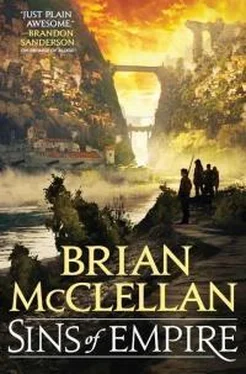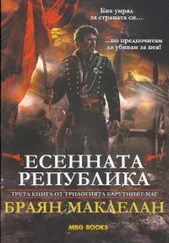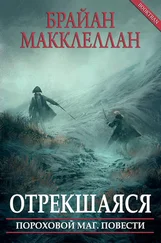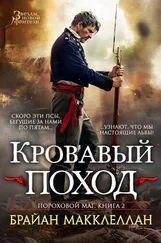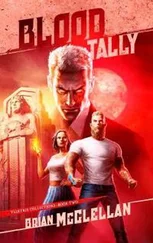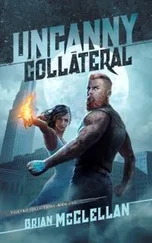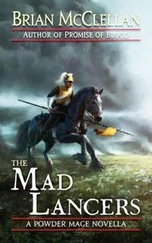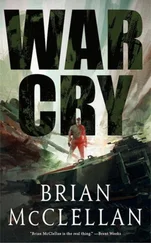“Yes,” she said, flipping through them absently. The loss of her cavalry, even for a week, was an irritating prospect. “Looking to see if he ever mentioned any crazy Palo warriors wearing swamp dragon leathers.”
“Seems like something that would have stood out,” Olem said. He sat down beside her in the grass, watching as a new keelboat pulled up to load more soldiers. Behind them, Fort Samnan still smoldered.
Vlora felt a pang of nostalgia. The letters were a constant reminder of a past life – for both her and Olem. “I would have thought so, but I wanted to check anyway.”
“Probably a good idea,” Olem agreed. “The Palo liked him, didn’t they?”
“He’s still a damned legend, even after all this time,” Vlora said, hoping she didn’t sound too sour. Every mention of Taniel put her on edge. Their history had been a… turbulent one.
“Do you think he would have fought for Fatrastan independence if he had known the Fatrastans would go on to treat the Palo like that?” Olem asked, jerking his head toward Fort Samnan.
“Maybe. Maybe not.” Vlora had some qualms about what she did for a living. But mercenary work couldn’t always be choosy. “He got into that war to kill Kez. Came out of it…” Vlora’s eyes narrowed involuntarily as she remembered the redheaded companion Taniel had brought back from his travels. “Well.” She snapped the hat box shut. “Nothing useful in here, not regarding that Palo warrior anyway.” She got to her feet and offered Olem a hand. “Let’s go to Landfall.”

Michel Bravis sat at the back of an empty pub, nursing a warm beer at six o’clock in the morning. Outside he could hear the local teamsters already at work hauling cotton and grain down to the docks, cursing the heat with every other breath. He wondered if there was a single person who actually liked summer in Landfall, but decided such a thing would be an affront against every god that ever existed.
He had spent most of his life in Landfall. He’d grown into a man during the revolution, worked the docks conning merchants and tourists during the reconstruction, and now as he approached thirty he served in the Lady Chancellor’s secret police – or, as they were more widely known, the Blackhats. I would think, he thought to himself bitterly, that I would have learned to head north for the summers.
He took a long sip of beer, checking his pocket watch. Eleven minutes past. Mornings, summer, and people being late. A perfect trifecta to put him in a foul mood.
And once in a foul mood in this blasted heat, he’d stay that way for the rest of the day.
He forced a grin on his face and displayed it to the empty bar. “You don’t have to be in a bad mood,” he said. “Cheer up. It could be worse. You could be outside.”
“Good point,” he replied to himself, taking on a serious air. “Besides, we’ve got beer on tap in here, and the owner won’t be around until noon.”
“You,” he said in his happy voice, draining the rest of his beer and heading behind the bar to refill his glass, “are going to get very drunk.”
“Yes. Yes I am.”
He often wondered what people thought when they overheard him speaking to himself. Probably that he was a mad fool. But circumstance had often found him alone as a young man, and speaking aloud helped him gather his thoughts and stave off boredom on the long, hot Fatrastan nights. Besides, in his line of work it was best to keep people at arm’s length.
He was on his third beer when the door finally opened and a young man appeared. He peeked inside hesitantly, his legs braced as if to run, and then glanced over his shoulder before calling out, “Hello?”
“Yeah, I’m over here,” Michel said, waving. “You’re late.”
“I couldn’t find the place.”
“Stupid excuse.”
“Pardon?”
Michel held up his beer, examining the young man through the glass. Young man? A boy, more like it. Couldn’t be older than sixteen, barely even a scruff of beard on his chin. He was short for his age, a little bit overweight, but with the kind of plain face that could disappear into the crowd. Not all that different from Michel, which wasn’t surprising. It was, after all, the first thing the Blackhats looked for in a spy.
“A stupid excuse,” Michel repeated. The young man wore high-legged trousers, a flat-cut jacket, and a scarf in the style of a poor man’s cravat. The outfit was three years out of date, and it irritated Michel. “Not being able to find an address makes you look either a fool or an asshole. Both of those can come in useful at one time or another, but not as often as you’d think. Nobody likes a fool or an asshole, and the first thing you need to be is likable, or else you won’t blend in anywhere.”
The young man cast a confused glance around the bar, his eyes slightly wide as if he’d stumbled onto the lair of a crazy person. “Are you Mickle?” he asked.
“Michel,” Michel corrected, putting an emphasis on the second half of the name. “Me-Kell. My name doesn’t rhyme with ‘pickle.’”
“Right,” the young man said slowly. “I’m Dristan. Are you the guy who’s supposed to teach me how to be a spy?”
“Likable people,” Michel continued, ignoring the question, “are informed. They say please and thank you. They ask for directions. They are punctual. You’re going to be all these things, or you’re not going to be able to do your job. At best, the people you’re sent to observe will reject you. At worst, they’ll find out you’re not who you claim to be and kill you very slowly.” Michel sighed, finishing his beer and telling himself he shouldn’t drink another one. “You’re not a spy,” he said. “You’re going to be what we call a ‘passive informant.’ You’ll become someone else, immersing yourself entirely into a life that is not your own, and leak information about unrest, crimes, and plots against the government to your handler.”
Dristan looked more than a little pensive. He remained standing, uncertain of himself, still seeming like he might run at any moment.
Michel continued: “Don’t dress like a lower-class dandy. It makes you memorable, and you rarely want to be memorable. Wear short trousers and a light-colored shirt. Maybe a flatcap. You can never go wrong dressing like a common laborer.” Michel whirled his finger in the direction of Dristan’s head. “That look you have on your face: that hesitant, nervous thing. You want to start practicing not making that face. It’s suspicious. Now, tell me your name.”
“I told you I’m Dristan.”
“No,” Michel said, slamming the palm of his hand on the table. Dristan jumped. “Tell me your name.”
“I’m Dri…” Dristan paused. “My name is, uh, Plinnith.”
He catches on quicker than most of the people I teach to do this. “Plinnith? What kind of a name is Plinnith? That’s a stupid name.”
“Hey, I’ve heard it around before!” Dristan protested.
Michel rolled his eyes. “Plinnith is a stupid name,” he repeated slowly. “What kind is it?”
Dristan stared at him as if wondering what, exactly, he was asking for, before his eyes suddenly lit up. “Oh, oh! Plinnith. It’s Brudanian.”
“That where you’re from?” Michel asked, continuing the mock interrogation.
“I’m not. My, um, my mother was Brudanian. Came from a fishing village there.”
“Oh yeah? My best friend is from a fishing village in Brudania. Maybe it’s the same place.”
“I don’t remember the name,” Dristan answered.
Читать дальше
